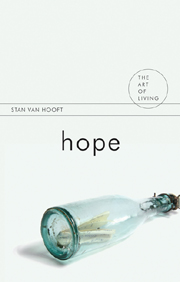Introduction: mapping the terrain
Summary
There is not much written about hope these days. Perhaps it is not an attitude that there is much call for in an age of constant war, global poverty and threatening environmental catastrophe. When the future seems to promise nothing but disaster it is resilience rather than hope that is the virtue most needed in our time. However, in this book I shall argue that hope is not only an essential existential attitude for all of us but also, if it is realistic, an important virtue.
To speak of virtue is to speak of character traits and dispositions that help us to live life well. The person of courage, for example, is able to face difficulties that inspire fear in her and so to succeed in her projects. The generous person is able to overcome his tendency to selfishness and so helps those in need and wins the gratitude and respect of others. In these and many other ways a virtuous person is able to succeed in life in a way that a vicious person will not. Of course, this understanding of virtue ignores the ethical or moral norms that are often associated with that concept. Most people think of being virtuous as an ethical requirement whose value resides in moral goodness as such. One should not act generously in order to win the favour of others but because being generous is a good thing in itself.
- Type
- Chapter
- Information
- Hope , pp. 1 - 10Publisher: Acumen PublishingPrint publication year: 2011



